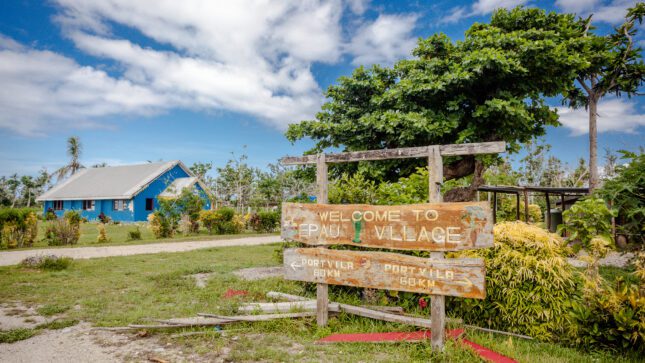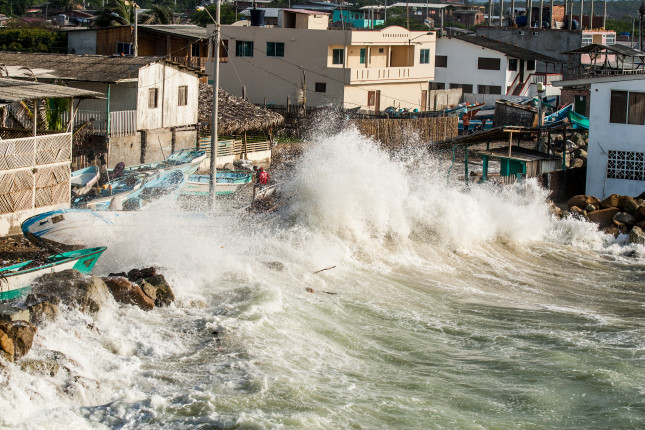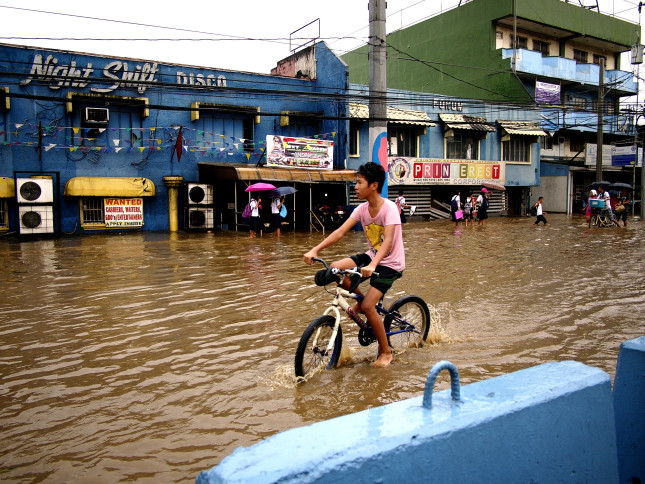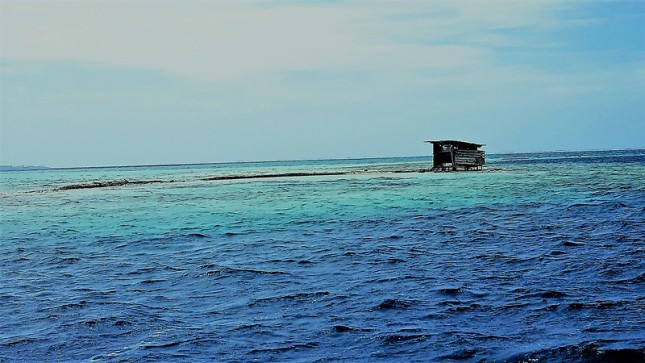-
Guam and Vanuatu: Different Paths from Environmental Change to Human Insecurity
›
Our present ecocrisis drives human insecurity. Single weather events killed hundreds in 2024, even in wealthy countries such as the United States or Spain. And beyond that staggering toll in human lives lurk staggering amounts of money required to repair and rebuild. In the United States alone, inflation-adjusted disaster-attributable costs have reached on average $153 billion each year. These factors and others make global environmental change a severe risk to human security.
-
ECSP Weekly Watch | October 21 – 25
›
A window into what we’re reading at the Wilson Center’s Environmental Change and Security Program
COP16 Begins in Colombia (Al Jazeera)
Almost 200 countries are gathering in Colombia for a two-week span (October 21 to November 1) for the UN Convention on Biodiversity to further global conservation goals. At COP15, the meeting culminated with an ambitious global treaty—the Kunming-Montreal Global Biodiversity Framework (2022)—that required member states to halt and reverse biodiversity loss. The agreement had four goals that set a “30×30“ agenda to protect 30% of global land, earth, and water ecosystems by 2030.
-
ECSP Weekly Watch | July 24 – 28
›
A window into what we are reading at the Wilson Center’s Environmental Change and Security Program
Fixing the World’s Broken Food Systems
The United Nations summit on the state of the world’s food systems took place in Rome, Italy, this week, building on the work of a previous convening in 2021. The meeting focused on the environmental impact of agriculture and making food production more sustainable.
-
Climate and Coastal Adaptation: The Need for Urgent Planning
›
The latest report from the UN’s Intergovernmental Panel on Climate Change highlights the small window of opportunity available to achieve climate resilient development, despite the growing risks of reaching tipping points. Environmental advocates argue that the UN’s warnings should remain front-and-center, including those that highlight worsening climate trends already experienced by developing nations.
-
The Climate and Ocean Risk Vulnerability Index: Measuring Coastal City Resilience to Inform Action
›Guest Contributor // January 26, 2021 // By Jack Stuart, Sally Yozell, Miko Maekawa & Nagisa Yoshioka
As the climate crisis continues to worsen, climate finance remains a fraction of what is needed. The Climate Policy Initiative estimates that $579 billion was spent on average on climate finance in 2017/18. This includes domestic and international investment from both the public and private sectors towards climate mitigation and adaptation actions. Of this amount, only $30 billion—five percent—was allocated for climate adaptation. This amount stands in stark contrast to $180 billion, which the Global Commission on Adaptation estimates is needed every year to build resilience to current and future climate impacts. This catastrophic funding gap is intensifying climate security threats and elevating the vulnerability of people across the world, particularly in coastal urban centers.
-
21st Century Diplomacy: Foreign Policy is Climate Policy (Report & Project Launch)
›
Climate change will upend the 21st century world order. It will redefine how we live and work, and change the systems of production, trade, economics, and finance. Even now, in the midst of a global pandemic, it is clear that climate change will be the defining issue of this century. In fact, COVID-19 has only underscored the inadequacy of our responses to global crises and heightened the urgency of this call to action. 21st century diplomacy will have to raise climate ambition, shape the transformative systems change needed, and promote and facilitate new modes of multilateral collaboration.
-
Navigating Land and Security When Climate Change Forces People to Relocate
›
At an event organized by the Coalition of Atoll Nations on Climate Change in December 2019, Tabitha Awerika, 21, from Kiribati, urged world leaders to listen to the climate science and to the pleas of those living in the South Pacific. “I will not leave the lands of my ancestors,” she said. “I will not abandon my motherland. I refuse to leave the only place I call home.”
-
Our Ocean and Cryosphere Under Threat
› Evidence of the effects of climate change continues to mount. We see it in extreme weather events, including droughts and intense hurricanes and cyclones, in biodiversity loss, and in erratic weather patterns around the globe. While many of these impacts rightfully make it into front-page news, climate change is also profoundly affecting parts of our planet that we do not understand well—the ocean and the cryosphere.
Evidence of the effects of climate change continues to mount. We see it in extreme weather events, including droughts and intense hurricanes and cyclones, in biodiversity loss, and in erratic weather patterns around the globe. While many of these impacts rightfully make it into front-page news, climate change is also profoundly affecting parts of our planet that we do not understand well—the ocean and the cryosphere.In September 2019, the International Panel on Climate Change issued a Special Report on the Ocean and Cryosphere in a Changing Climate (SROCC). The report provides a new and sobering analysis of current conditions, as well as projections into the future. Produced by more than 100 authors from 36 countries, the SROCC painstakingly reviews the latest scientific literature, referencing some 7,000 scientific publications in all.
Showing posts from category small island states.








 Evidence of the effects of climate change continues to mount. We see it in extreme weather events, including droughts and intense hurricanes and cyclones, in biodiversity loss, and in erratic weather patterns around the globe. While many of these impacts rightfully make it into front-page news, climate change is also profoundly affecting parts of our planet that we do not understand well—the ocean and the cryosphere.
Evidence of the effects of climate change continues to mount. We see it in extreme weather events, including droughts and intense hurricanes and cyclones, in biodiversity loss, and in erratic weather patterns around the globe. While many of these impacts rightfully make it into front-page news, climate change is also profoundly affecting parts of our planet that we do not understand well—the ocean and the cryosphere.

